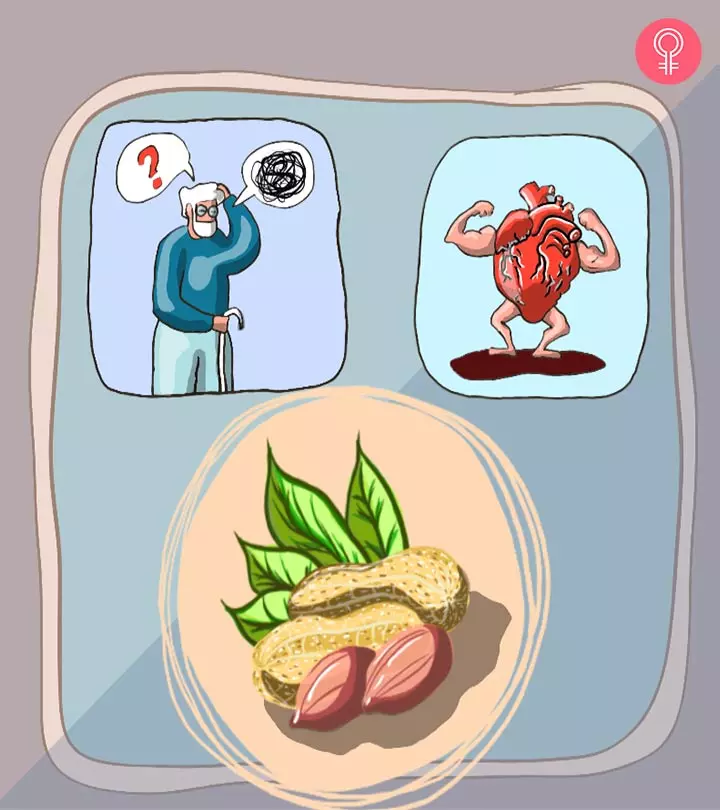4 Incredible Health Benefits Of Donating Blood
Boost wellness, save lives, and experience surprising perks by sharing your gift today!

Image: Shutterstock
About 32,000 pints of blood are used each day in the United States. And 1 pint of blood can save 3 lives. That’s close to 4 million lives in a year (1)! So, the next time you are donating blood, understand you are making an impact.
You sure would have donated blood. Probably not with the intention of deriving any benefit but to save a fellow human being’s life. But did you know that the act of donating blood has some incredible benefits? In a way, you are also doing yourself a whole lot of good. And in this post, we’ll discuss what that good is – in detail.
What Are The Benefits Of Donating Blood?
1. Blood Donation Can Reveal Potential Health Problems
You undergo a simple physical examination and a short blood test before you donate blood. This is important as any potential health concerns unknown to you are revealed (2). Such concerns include high blood pressure and low blood count.
If there are serious issues, the clinic will not draw your blood – and you will be notified why. This can be good news as you now have the time to take preventive action.
But keep in mind that you must never donate blood to check the possibility of blood-borne diseases – including hepatitis B and C and HIV. You must instead consult your doctor for the same. The mini-physical examination prior to blood donation is not a substitute for a full health checkup.
2. Can Promote Heart Health
Blood donation reduces the blood’s viscosity, and this can prevent heart attacks. A Nigerian study found that regular blood donation lowered total cholesterol levels and even LDL (the bad cholesterol), cutting the risk of cardiovascular disease (3).
Regular blood donation can also cut the risk of myocardial infarction (blockage of blood flow to the heart, causing a heart attack) in middle-aged men (4).
3. May Cut Cancer Risk
A 2008 study found a slight decrease in cancer risk among individuals who donated blood frequently (5). These cancers were linked to excess iron levels in the blood, and they include cancer of the liver, colon, esophagus, stomach, and the lungs.
Frequent blood donation can lower excess iron levels in the blood, thereby reducing cancer risk. Interestingly, this phenomenon can cut the risk of heart disease as well.
4. May Help With Detoxification
Though studies are limited, we can say blood donation plays a role in detoxification. It paves the way for the production of new blood cells.
These are the major benefits of blood donation. Donating blood is a noble act. And we believe the primary motive behind carrying it should be to save someone’s life.
Though common, most of us aren’t aware of how to ensure a successful blood donation. The following tips can help.
What To Do Before/After Donating Blood?
Keeping the following pointers in mind can make it more effective. You are donating blood – and you sure want to ensure you are giving your best.
Before Donating Blood
- Stick to consuming only healthy and iron-rich foods at least a few days before donation (if you are not doing so already). These foods include spinach, beans, fish, and cereals fortified with iron. Iron deficiency is one common reason for deferrals.
- Get a good night’s sleep, especially the night before blood donation.
- Have a balanced meal at least 3 hours before donating your blood. Avoid fatty foods like fries, hamburgers, etc.
- Drink extra water (16 ounces) before donation. Dehydration is another common reason for deferrals.
- Wear a short-sleeved shirt or one with sleeves easy to roll up.
- Remember, you need to be at least 17 years or older to donate blood. You should weigh at least 110 pounds and be in a good state of health.
- You must inform the nurse if you are on medication(s) or have any medical condition as this might interfere with your eligibility to donate blood.
After Donating Blood
- Drink plenty of fluids in the next 24 to 48 hours. This will replenish the fluids lost during the donation.
- Avoid physical exertion for the next 24 hours. Try not to lift any weights.
- In case you feel lightheaded, understand that it is normal. You can lie down with your feet elevated, and the feeling will pass.
- If something doesn’t feel right even after a while, call the Donor Center and inform them. You may also want to visit the center and check if anything is wrong with you.
In addition to the precautions, you must also be aware of the common misconceptions and learn to differentiate them from the facts.
What Are The Common Misconceptions About Blood Donation?
Myth 1:
If you are a vegetarian, your blood does not have enough iron and is not fit for donation.
Fact: Vegetarians can donate blood as adequate iron levels depend on one’s diet (6).
Myth 2: There is limited blood in the body and giving away some can be dangerous.
Fact: Your body produces new blood after donation. Blood cells in your body die, and your body makes new ones all the time (7). Also, only about 350-450 mL of blood is taking during donation.
Myth 3: Heavy people have more blood and are hence eligible for donation.
Fact: Being heavy is a sign of bad health. This makes them less eligible for donation. Heavy people don’t have more blood as fat contains proportionately less blood than muscle (8).
Myth 4: Taking medications means you cannot be a blood donor.
Fact: It depends on the medication. Please inform the donor center if you are taking any medications for any health condition. Some medications may require you to defer for a certain period (9).
Myth 5: Blood donation can lead to HIV or other serious diseases.
Fact: No way! New, disposable, and sterile needles are used to collect your blood. These needles contain no blood from an HIV-positive person or anyone with any disease (10).
Blood donation is absolutely safe for healthy adults. You might experience some side effects – but these are mostly common and subside after a while. Some of the side effects include:
- Feeling nauseous or lightheaded
- Bleeding at the site of the needle injection/a bruise
- Arm pain or numbness
- A tingling sensation
In case these effects persist even after hours, please consult the donor center.
Conclusion
Donating blood sure can keep you healthy – which is probably the most important reason you should even do it. Start donating blood today. Leave a comment in the box below and let us know how this post has helped you.
Frequently Asked Questions
Can you donate blood every month?
No. You must wait for at least eight weeks before you can donate blood again.
How long does blood donation take?
The actual donation takes just about 10 to 15 minutes. The entire process, right from the physical test to the post-donation refreshments, takes about an hour.
How soon can you donate blood after having a baby? Can you donate blood while pregnant?
The waiting time can range from 6 weeks to 6 months, and sometimes, even more. It depends on your physical health and the area you live in. Please consult your doctor for more information in this aspect.
And no, pregnant women should not donate blood.
What to eat after donating blood?
Take a lot of fluids, including water and fruit juice. Also, consume foods rich in iron (spinach and red meat), folate (dried beans and green leafy veggies), and vitamin B6 (bananas and potatoes).
Avoid alcohol and coffee (or other caffeinated beverages) for at least 48 hours as they can aggravate dehydration and make you feel worse.
What is the difference between donating blood and plasma?
When you donate blood, you basically give away blood along with its components (red blood cells, plasma, and platelets). But when you donate plasma, the red blood cells and platelets are returned to the donor.
References
- “Blood Product Safety”. US National Library of Medicine.
- “Associations of health status with subsequent…”. PloS One. VU University, Amsterdam, The Netherlands.
- “Lipid profile of regular blood donors”. J Blood Med. University of Lagos, Lagos, Nigeria.
- “Donation of blood is associated with a reduced…”. Am J Epidemiol. University of Kuopio, Finland.
- “Donation frequency, iron loss, and risk of…”. Journal of the National Cancer Institute.
- “Haemoglobin and iron: information for…”. World Health Organization. National Center for Biotechnology Information.
- “Blood”. MedlinePlus. US National Library of Medicine.
- “General donor assessment”. World Health Organization. National Center for Biotechnology Information.
- “Blood donors on medication…”. Eur J Clin Pharmacol. Medizinische Hochschule Hannover, Germany.
- “Knowledge, misconceptions and motivations…”. Pak J Med Sci. King Abdulaziz University, Jeddah, Arabia.
Read full bio of Ravi Teja Tadimalla




























Community Experiences
Join the conversation and become a part of our empowering community! Share your stories, experiences, and insights to connect with other beauty, lifestyle, and health enthusiasts.